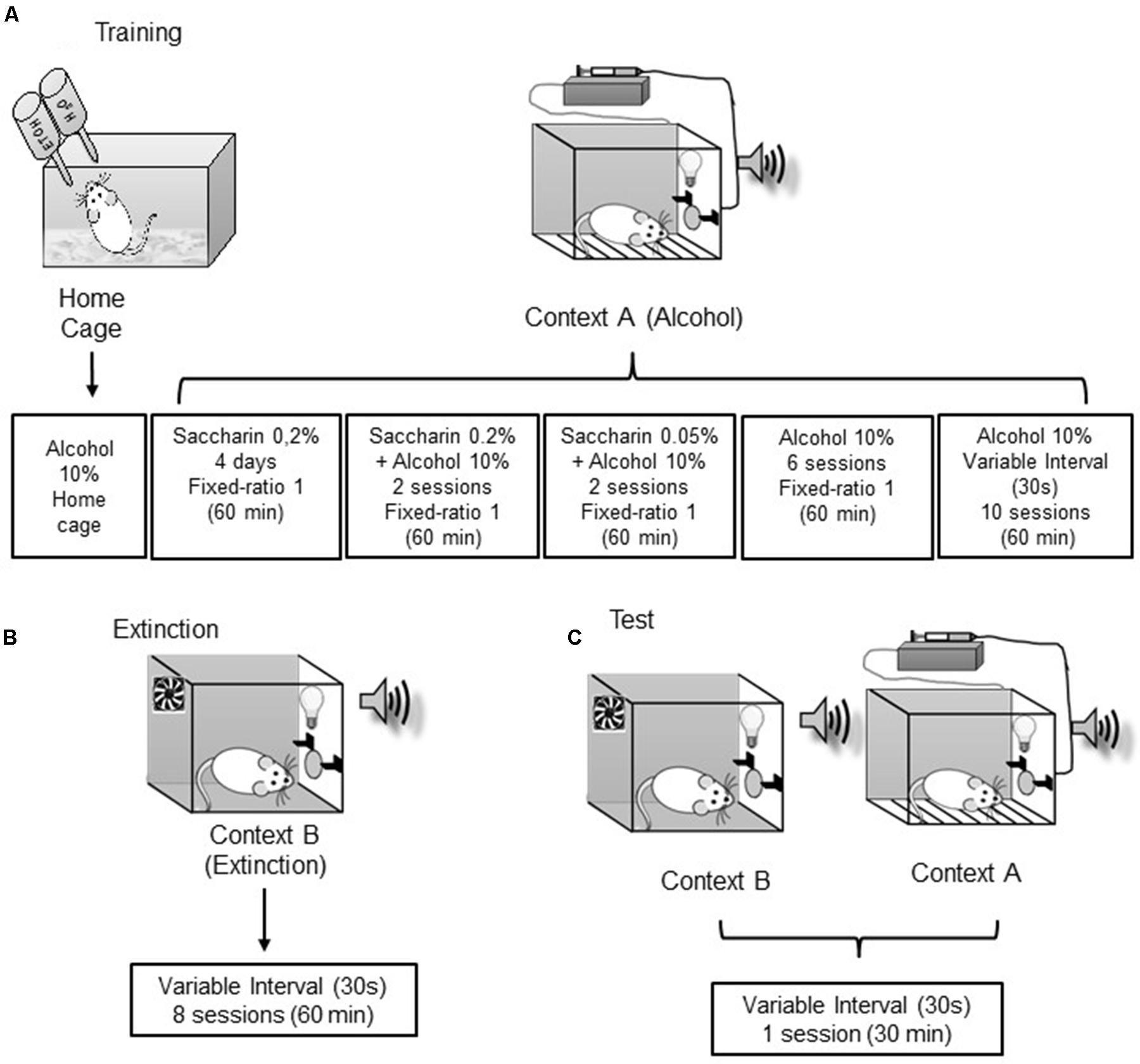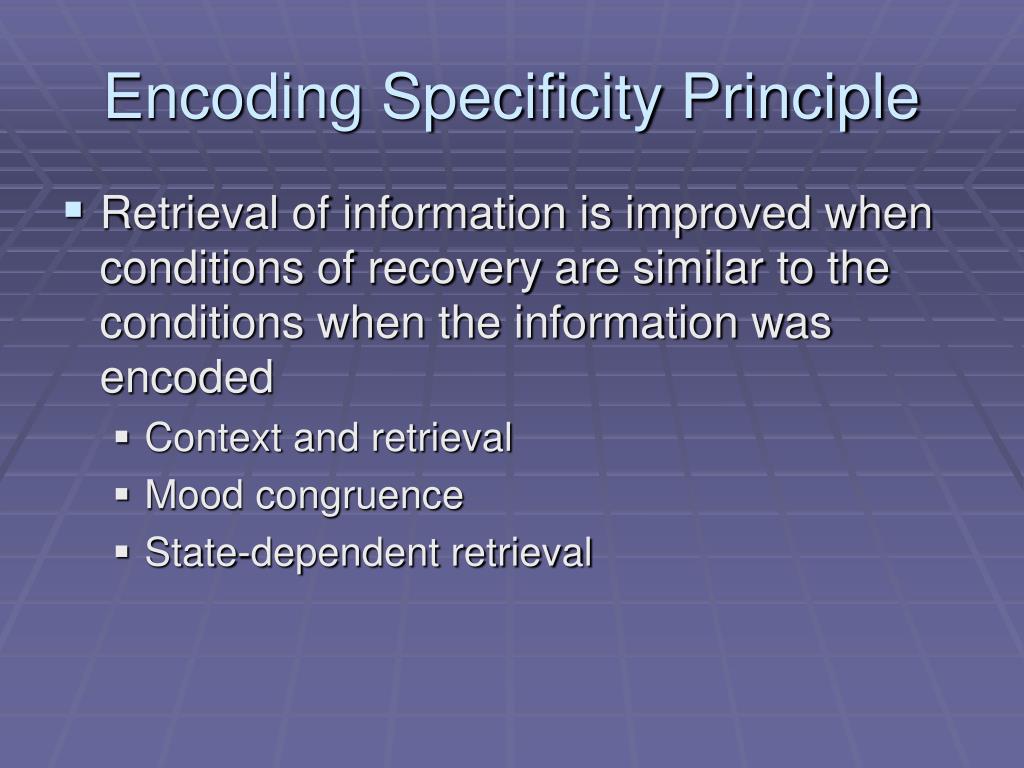
A classic experiment on the encoding specificity principle had participants memorize a set of words in a unique setting. In general, the encoding specificity principle states that, to the extent a retrieval cue (the song) matches or overlaps the memory trace of an experience (the party, the conversation), it will be effective in evoking the memory. Years later, even though you haven’t thought about that party in ages, when you hear the song on the radio, the whole experience rushes back to you.

Thus, the song became part of that whole complex experience. For example, take the song on the radio: perhaps you heard it while you were at a terrific party, having a great, philosophical conversation with a friend. The general principle that underlies the effectiveness of retrieval cues is the encoding specificity principle (Tulving & Thomson, 1973): when people encode information, they do so in specific ways. Something that cannot be retrieved now and which is seemingly gone from memory may, with different cues applied, reemerge. We can't know the entirety of what is in our memory, but only that portion we can actually retrieve. Nevertheless, the song is closely associated with that time, so it brings the experience to mind. You may hear a song on the radio that suddenly evokes memories of an earlier time in your life, even if you were not trying to remember it when the song came on.

What factors determine what information can be retrieved from memory? One critical factor is the type of hints, or cues, in the environment.


 0 kommentar(er)
0 kommentar(er)
